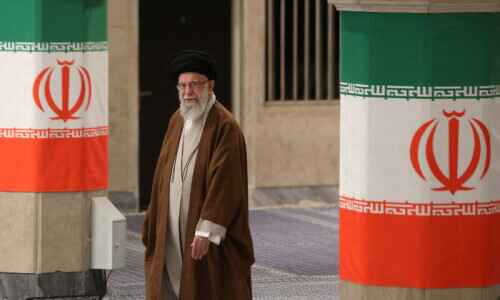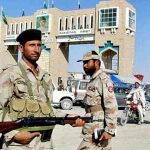This week, Iran will hold elections to replace President Ebrahim Raisi, whose death in a helicopter crash may make it more difficult for the government to handle a more important task: the succession to the position of supreme leader.
Raisi’s unexpected passing has sparked a scramble among hardliners to influence the choice of Iran’s future leader. Raisi was formerly thought to be a potential successor to Ayatollah Ali Khamenei, the country’s aging supreme decision-maker.
Khamenei, 85, is reportedly attempting to manipulate the election results in order to select a passionately loyal candidate for president on June 28. The candidate would be expected to govern the nation on a day-to-day basis and be a reliable ally who can maintain stability.
“The future president is probably a former Revolutionary Guards member who is a staunch advocate of Khamenei. Someone without any political rivals and a spotless past,” analyst Saeed Leylaz of Tehran stated.
Candidates must first register on Thursday, but that is just the start of the process. The Guardian Council, a strict oversight organization that disqualifies candidates without always disclosing their reasoning, will next review the candidates.
There have been talks among the leadership about the advantages of different approaches to managing the presidential campaign, according to three individuals who are aware with the thinking at the highest levels of the Iranian establishment.
The general consensus was that electing a president who is fiercely devoted to the supreme commander and his principles should be the main objective. Low voter turnout will unavoidably secure it, according to one of the sources, who, like the others, chose not to provide their name because the subject matter was so delicate.
The objective, which is to elect a hardline president capable of orchestrating a seamless handover at the highest level of government upon Khamenei’s ultimate demise, nonetheless poses a dilemma for the governing clerics overseeing the voting process the following month.
The insiders and observers think that in order to guarantee that the victor is an unwavering supporter of Khamenei, hardliners with views akin to his would probably control the next election.
Voters’ options are limited
However, limiting the options available on the ballot is probably going to reduce voter interest and turnout, which would be detrimental to the 45-year-old Islamic Republic’s reputation.
In Iran, this dilemma is not unfamiliar. Securing a strong turnout is usually the issue facing the clerical establishment in a contest where candidates are scrutinized thoroughly.
On June 11, the Guardian Council will make the list of eligible applicants public.
Raisi won in 2021 with roughly 49% of the vote, which was a considerable decrease from the 70% in 2017 and the 76% in 2013. This was mostly due to voter apathy following the removal of prominent conservative and moderate opponents by the Guardian Council.
Critics claim that the demonstrations, which lasted for months after the death of a young lady detained by the morality police in 2022, were also motivated by dissatisfaction with social and political constraints as well as economic hardship.
Some researchers suggest that putting modestly moderate candidates on the ballot could help increase voter turnout.
Reformists, who are currently out of power, support better ties with the West, a gradual shift toward greater freedom of speech, and a relaxation of the rigid Islamic dress code while remaining devoted to Iran’s theocratic regime.
Mohammad Ali Abtahi, a reformer and former senior official, stated that if the pro-reform camp’s candidate was allowed to run, they would contest the election. However, he added that it was unclear how much political space reformists would be granted.
It is possible to break the pattern of low voter turnout that has produced hardline victory in previous elections for the legislature and presidency. However, he expressed skepticism regarding any possible political opportunity.
Prospective applicants
Though some voters feel that throughout their tenure in office over the past ten years, the reformists did not achieve greater liberties, it is still uncertain how strong of an electoral position they have.
In addition, the protests of 2022 revealed a growing divide between reformists and those calling for “regime change.”
It might not be sufficient to encourage people to attend, even if a few well-known moderates are allowed to stand. The belief that people with reform-minded views will bring about genuine change has frequently duped voters, according to Gregory Brew, an analyst at Eurasia Group.
Iran’s foreign and nuclear policies, which are overseen by the supreme leader, are unlikely to change under a new president.
According to the insiders, Parviz Fattah, a former member of the Guards who oversees an investment fund connected to the leader, and Saeed Jalili, a former chief nuclear negotiator who oversaw Khamenei’s office for four years in 2001, may be among the candidates registered.
According to a third insider, Fattah will decide in full “after meeting some senior authorities on Wednesday.”
Iranian media has also speculated that Ali Larijani, a former speaker of parliament and adviser to Khamenei, and interim president Mohammad Mokhber could be the next president. Larijani was not permitted to run for president in 2021.








